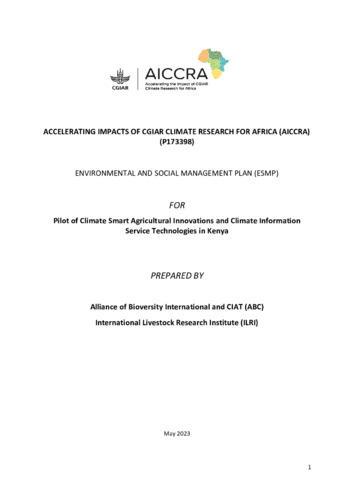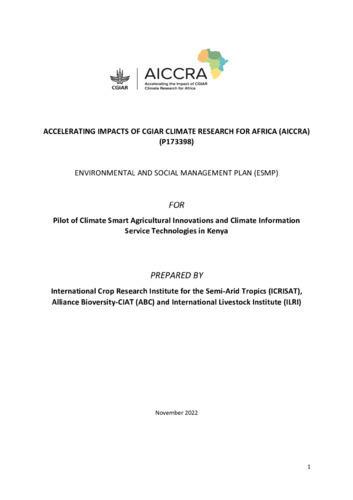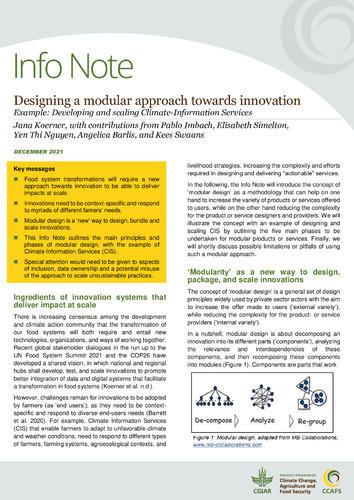Blog Enhancing Climate Information Services for Climate Change Adaptation in Kenya
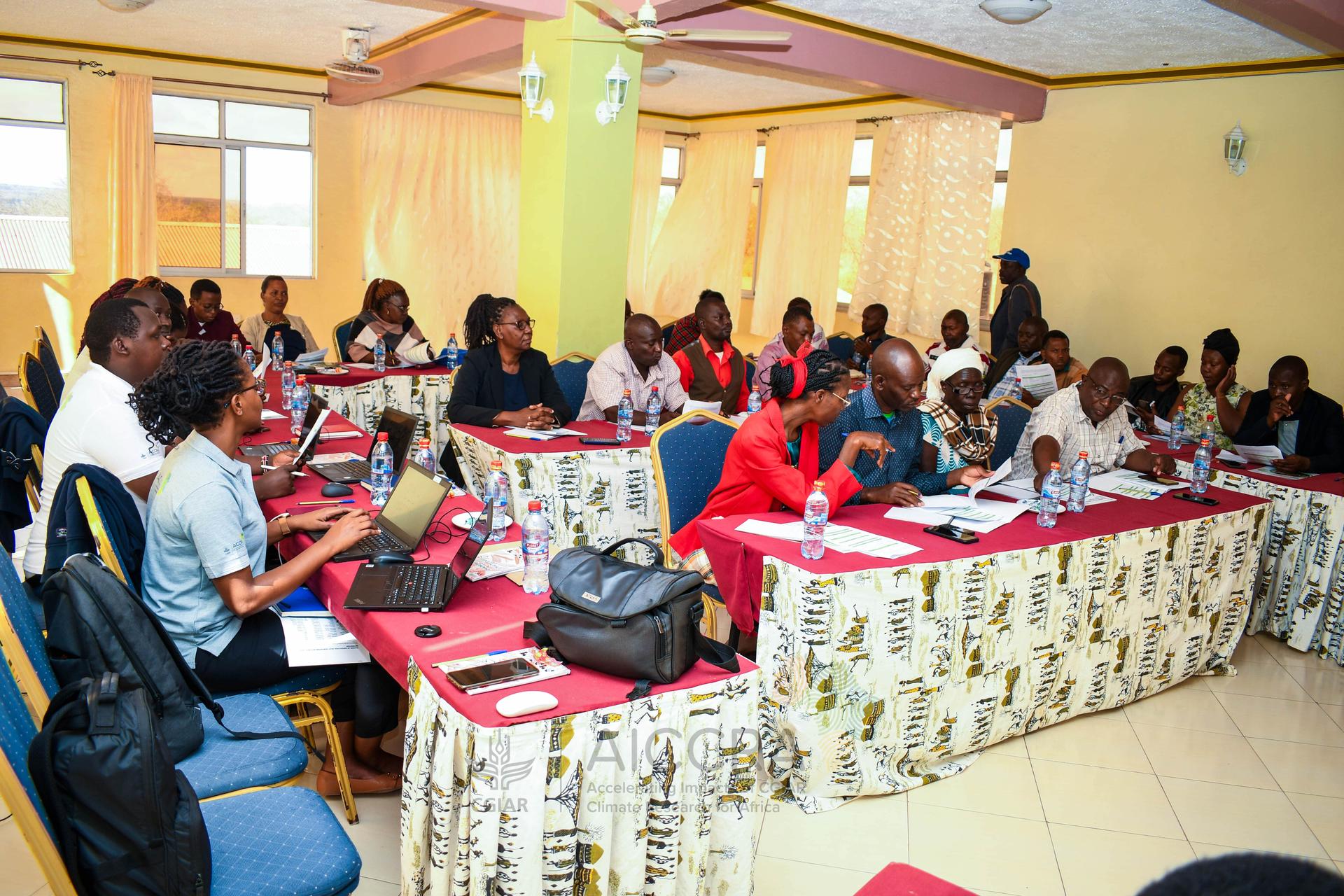
The initiative 'Accelerating Impacts of CGIAR Climate Research for Africa (AICCRA)' seeks to revolutionize climate information services in Kenya, empowering small-scale farmers with timely and localized climate data to enhance their climate change adaptation strategies, promote sustainable agricultural practices, and foster meaningful collaborations between key stakeholders.
By: Tessie Akoko and Alex Nduah, Edited by Owen Kimani and Edith Mutui
Climate change variability increases the vulnerability of small-scale farmers and reduces the effectiveness of risk management in agriculture. Providing farmers with timely and accurate climate information can allow them to make better decisions in agricultural planning, thus increasing farm productivity and adaptability, and enhancing climate change mitigation. However, effective delivery of climate information services in Kenya and other developing countries is still beginning.
Climate information entails collecting, analyzing, and disseminating weather and climate data to different users and stakeholders. Among the factors that contribute to low adoption and utilization on a small scale is that the information is usually provided as 'blanket' recommendations, while different farmers need highly contextualized (individually adapted) climate information. In addition, the information needs of these farmers are most of the time not clearly understood by the climate information service providers and disseminators. Farmers may also not understand the role of climate information in supporting them to make better risk management decisions and respond better to climate change in their different agricultural activities. In some cases, access to timely and accurate information is a big challenge. Therefore, understanding the farmer's needs, making the information accessible at the right time, and capacity building on the importance of climate information services in enhancing adaptation to climate change is crucial.
Accelerating Impacts of CGIAR Climate Research for Africa (AICCRA) - a project led by the Alliance of Bioversity International and CIAT and its partners - aims to respond to these challenges and transform small-scale farming into a climate-smart sector, driven by science and innovations. To achieve this goal, The Alliance of Bioversity International and CIAT held a training workshop on the 11th-13th of July 2023 at Panlis Resort in Mwatate sub-county, Kenya. The objective of the workshop was to train participants on climate information services and related concepts such as providing foundational knowledge on climate change, weather forecasts, climate scenarios, and how to use Climate Information Services (CIS) to manage climate risks in agriculture.
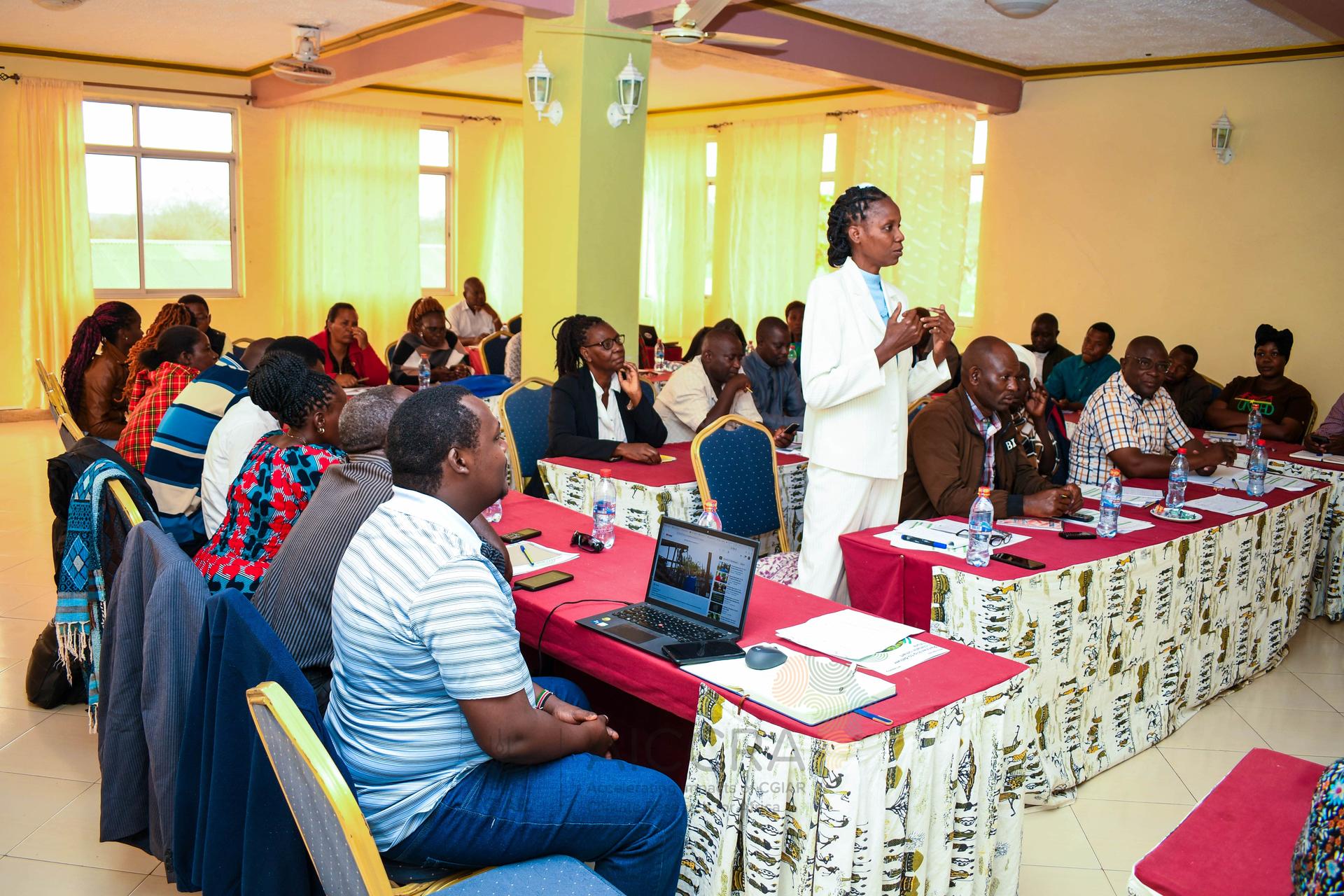
Plenary session during CIS training (photo credit Owen Kimani)
The training was facilitated by the Alliance and led by Mr. Paul Murage, Assistant Director, Kenya Metrological Department (KMD). Mr. Murage demonstrated to stakeholders in the workshop (including members from Taita Taveta University, KMD, agricultural officers and extensionists, farmers, community volunteers, and agro-dealers) the importance of climate information services to manage climate risks affecting their operations and activities in agriculture. Using some of the episodes aired from Shamba Shape-up TV. Mr. Murage demonstrated the use of climate information services, their development plans, and how these can be scaled out to benefit the various users of climate information systems in small-scale farming.
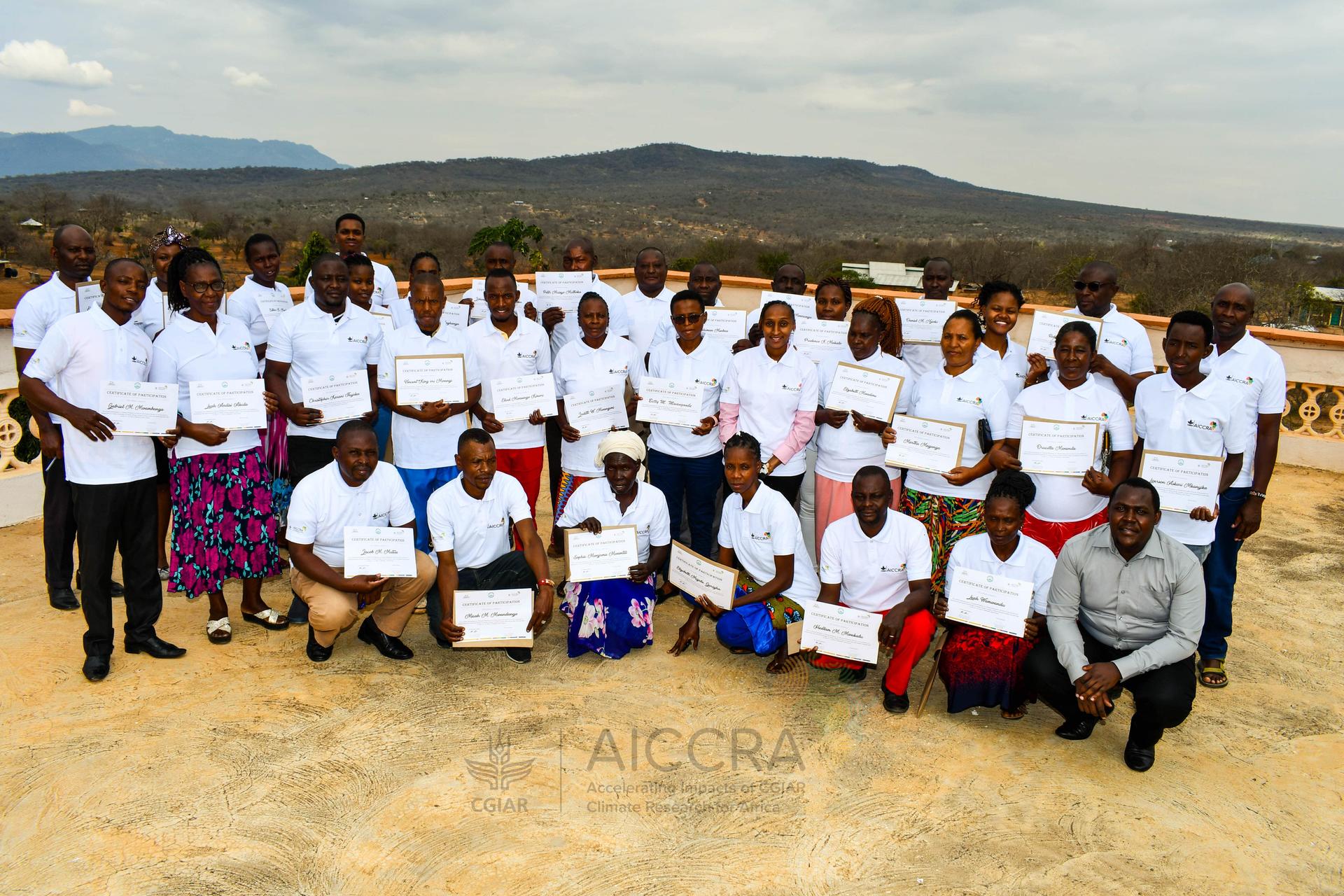
Presentation of certificates to trainees (photo credit Owen Kimani)
The main issues discussed at the workshop included the types and sources of weather information that farmers currently receive, how existing climate information products can be improved to increase relevance and effectiveness, and interventions targeting key stakeholders in climate information services to enhance its delivery and utilization by the end users. The main challenges to the delivery and utilization of climate information identified by participants in the workshop are: inconsistency in the weather forecasts, difficulty in accessing quality and certified seeds at the appropriate time, language barriers, limited access to the internet for online resources, limited awareness of the significance of climate information, and a lack of well-established dissemination channels. To address some of these challenges, the 'Accelerating Impacts of CGIAR Climate Research for Africa' project and other stakeholders seek to conduct capacity-building exercises in other four counties in Kenya to collect information that will inform the design of climate information systems customized to the needs of the end users. These training exercises will also foster strategic collaborations between the Alliance and other key stakeholders such as regional governments, Kenya Meteorological Departments, and academic institutions to ensure inclusivity and active participation of the target beneficiaries including small-scale farmers.
Related Content
